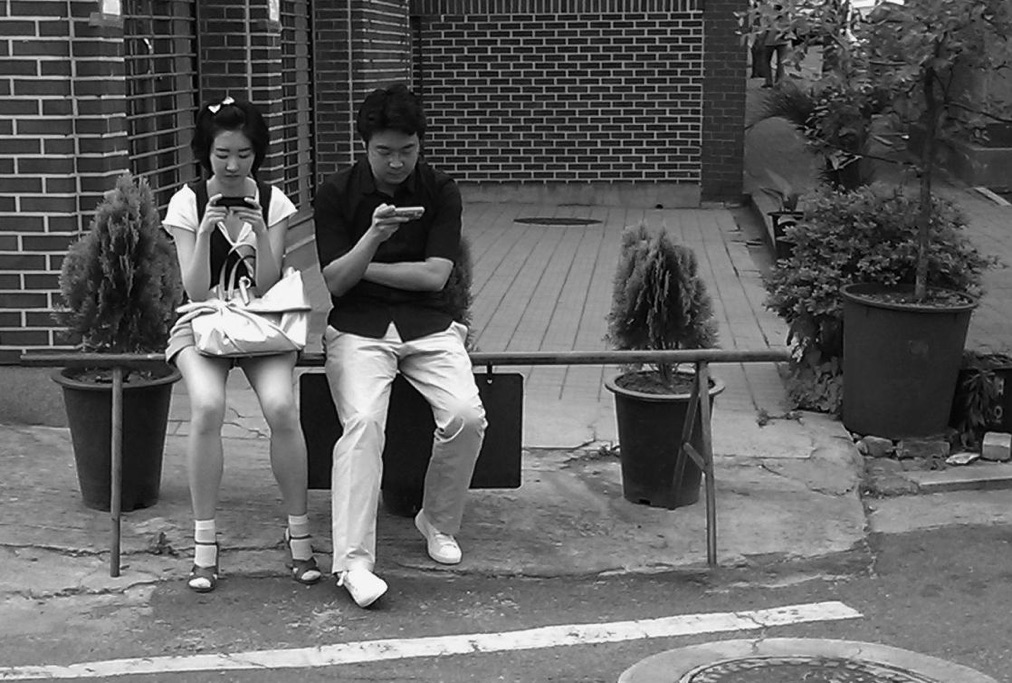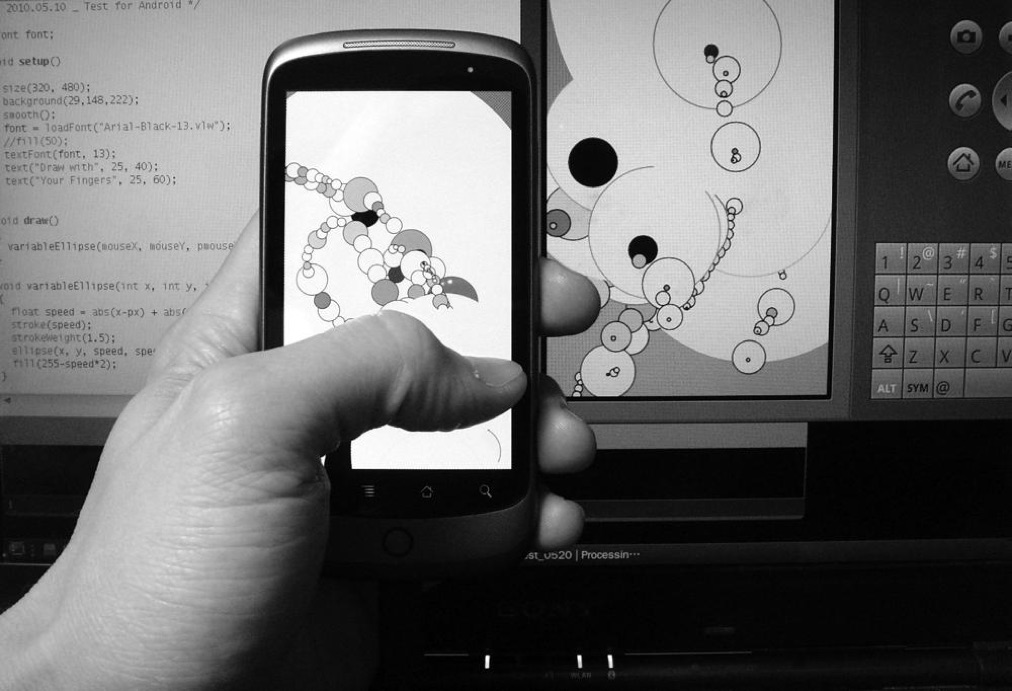ITCH
Mobile technologies mediate multiple aspects of our lives, from consumption to relationships. Smartphones have dramatically changed, for good and bad, how we interact with each other and with the environment around us. Back in 2010, when many of these changes were quickly becoming apparent, Jihyun Kim and I presented a paper at the ISEA conference, proposing a research plan to investigate how users could by-pass the commercially-approved functions of their phones in order to manifest and perform their subjectivity in everyday life.
 A street scene that I found surprising nearly 10 years ago, but now is commonplace.
A street scene that I found surprising nearly 10 years ago, but now is commonplace.
The same year, I started working on the Processing for Android project, which has as one of its main goals to make the development of Android apps easier and more accessible to users without technical background.

The project has been moving forward since then, slowly at the beginning, and now at a faster pace thanks to the contributions from users and Google Summer of Code Students, and the support of the Processing Foundation. In 2017, I published a book on developing mobile apps using Processing for Android. Our hope with this work is to enable further creative uses of mobile devices, and eventually expand the control and ownership we have over the software that runs on these devices and the data that they collect continuously about our interactions, habits, and whereabouts.